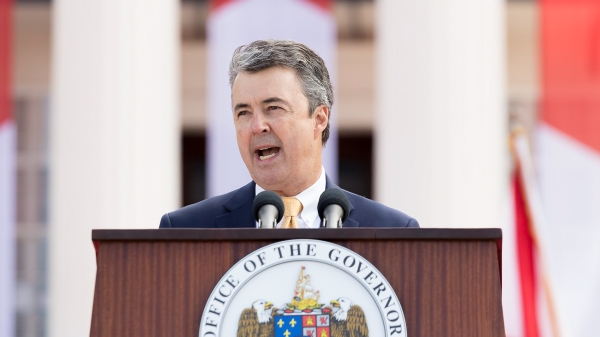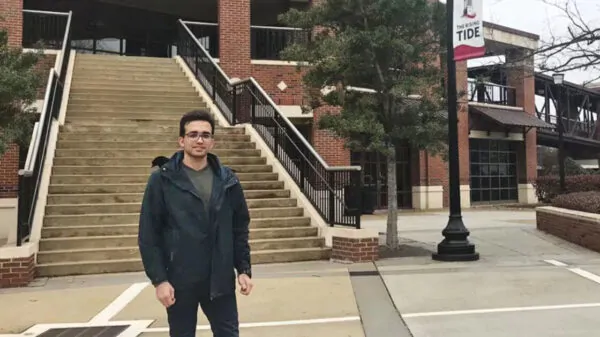Tuesday, Alabama voters went to the polls and overwhelmingly voted for Republican leadership for the next four years. Also on the ballot were four proposed amendments to Alabama’s 1901 Constitution.
Amendment one dealt with allowing the Ten Commandments to be displayed in state buildings.
“Proposing an amendment to the Constitution of Alabama of 1901, providing for certain religious rights and liberties; authorizing the display of the Ten Commandments on state property and property owned or administrated by a public school or public body; and prohibiting the expenditure of public funds in defense of the constitutionality of this amendment.”
Amendment One was sponsored by State Senator Gerald Dial (R-Lineville).
This was the most popular of the amendments. It got more votes than even any of the candidates. 1,091,181 Alabama voters voted yes on Amendment One. It got 72 percent of the votes. Only 431,568 voted no, 28 percent.
According to the Alabama Fair Ballot Commission, “Amendment 1 does two things. First, it provides that a person is free to worship God as he or she chooses, and that a person’s religious beliefs will have no effect on his or her civil or political rights. Second, it makes clear that the Ten Commandments may be displayed on public property so long as the display meets constitutional requirements, such as being displayed along with historical or educational items. Amendment 1 also provides that no public funds may be used to defend this amendment in court.”
Amendment Two reaffirms that Alabama is a prolife state and opposes abortion.
“Proposing an amendment to the Constitution of Alabama of 1901, as amended; to declare and otherwise affirm that it is the public policy of this state to recognize and support the sanctity of unborn life and the rights of unborn children, most importantly the right to life in all manners and measures appropriate and lawful; and to provide that the constitution of this state does not protect the right to abortion or require the funding of abortion.”
The bill was sponsored by state Representative Matt Fridy (R-Montevallo).
Planned Parenthood and abortion supporters spent nearly a million into defeating Amendment Two. Their efforts had little effect. 913,224 people voted in favor of Amendment Two, 59 percent. 634,122 people voted no, 41 percent.
According to the Fair Ballot Commission, “Under current law, the state constitution does not include any language that directly relates to the importance of unborn life or the rights of unborn children, nor does it include any language that directly relates to abortion or the funding of abortions using state funds. Amendment 2 provides that it would be the public policy of the state to recognize and support the importance of unborn life and the rights of unborn children, including the right to life; and to protect the rights of unborn children. Additionally, the amendment would make clear that the state constitution does not include a right to abortion or require the funding of an abortion using public funds. The proposed amendment does not identify any specific actions or activities as unlawful. It expresses a public policy that supports broad protections for the rights of unborn children as long as the protections are lawful.”
Amendment Three dealt with the Board of Trustees of the University of Alabama.
“Proposing an amendment to the Constitution of Alabama of 1901, relating to the Board of Trustees of the University of Alabama, to specify that the congressional districts from which members are appointed continue to reflect those as constituted on January 1, 2018, to remove the State Superintendent of Education from membership, and to delete the requirement that members vacate office at the annual meeting of the board following their seventieth birthday.”
Amendment three received 832,940 votes, 60 percent. 548,387 people voted no, 40 percent.
According to the Fair Ballot Commission, “Under current law, the University of Alabama Board of Trustees is composed of 16 people: three members from the congressional district in which the Tuscaloosa campus is located, two members from each of the other six congressional districts in the state, the Governor, and the State Superintendent of Education. So, if the number of congressional districts in Alabama increased or decreased in the future, the number of trustees would also increase or decrease. Additionally, other than the Governor and the State Superintendent of Education, current law requires a trustee to retire from the board following his or her seventieth birthday. Amendment 3 does three things. First, it provides that the board will be composed of members from congressional districts as those districts existed on January 1, 2018, meaning any future changes to the number of congressional districts in Alabama would not impact the number of board members. Second, it removes the State Superintendent of Education from automatically having a seat on the board. Third, it allows a trustee to serve after his or her seventieth birthday.”
Amendment three was sponsored by Sen. Greg Reed (R-Jasper).
Amendment Four dealt with vacancies in state legislative seats.
“Proposing an amendment to the Constitution of Alabama of 1901, to provide that, if a vacancy in either the House of Representatives or the Senate occurs on or after October 1 of the third year of a quadrennium, the seat would remain vacant until a successor is elected at the next succeeding general election.”
Amendment Four received 970,817 yes votes, 66 percent. 497,181 people vote no, 34 percent.
According to the Fair Ballot Commission, “Under current law, members of the state legislature are elected to four-year terms of office that begin and end on Election Day in November. This four-year period is known as a quadrennium. When a person who was elected to serve in the state legislature is unable to complete his or her term, a vacancy is created. When this vacancy occurs, the Governor is required to schedule a special election. The winner of the special election fills the vacancy for the rest of the term. Amendment 4 provides that when a vacancy occurs in the state legislature on or after October 1 of year three of the four-year term, the seat will remain vacant until the next general election, which occurs in November of the fourth year of the term. The Governor would no longer have the power to schedule a special election to fill a vacancy in these circumstances, and public funds that would have been spent on the special election would be saved.”
Amendment four was sponsored by state Senator Rusty Glover (R-Semmes).
The 1901 Constitution of Alabama is the longest constitution in the entire world.



















































